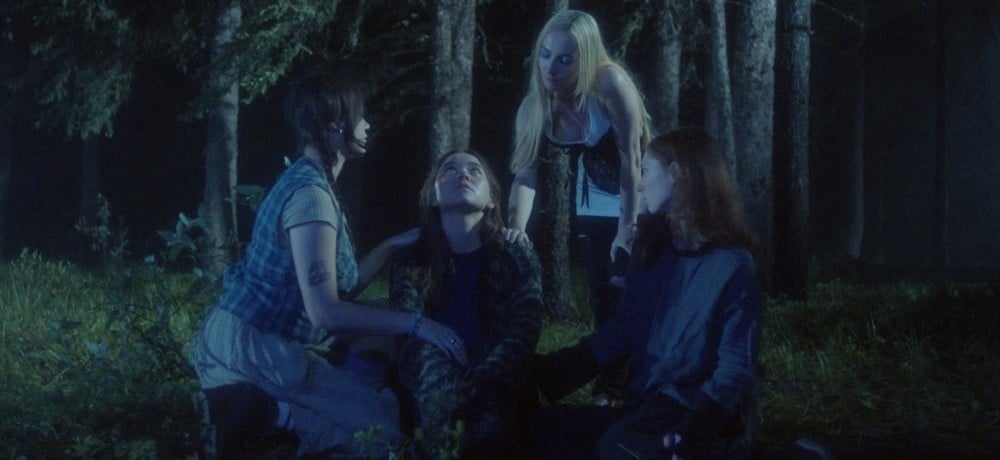970x125
Avalon Fast brought her second feature to Fantastic Fest, and I was excited to see it. I had previously enjoyed her earlier work, Honeycomb, and was curious to see what her next film would offer. Like Honeycomb, Camp is a film that lives squarely in the feminine space. It is a beautiful, hazy coming of age film about embracing your power and learning to forgive yourself.
Emily (Zola Grimmer) is struggling. She is still dealing with the recent death of her best friend, who overdosed on a drug supply that Emily had provided. This guilt lies on top of another incident from when she was sixteen, where she was involved in a traffic accident that killed a small child. She feels marred by tragedy, in the epicenter of a universe of darkness and loss, with no way out.
At her father’s suggestion, she takes a job as a camp counselor. They both hope that a change of pace and scenery will help her to put the past behind her and give her a fresh start. What she doesn’t realize is that she has been hired on at a religious camp. She needn’t worry though — only the lead counselor seems to be the only religious person there. Everyone else is drinking, smoking, and hooking up almost nightly. Emily is quickly befriended by a group of female counselors who have come to the camp for years. They are a tightly knit group, but easily make space for Emily within their circle. Though Emily suspects the girls to be witches, she isn’t afraid or put off. Soon, in fact, she begins to find the support and the friendship that she has been looking for.
The nature of this film is challenging. Yes, the girls find strength and power in each other, but that power doesn’t come without its own cost. Camp deals in themes of healing, but also of violence. The witchcraft that these young women perform is not without its own repercussions. Sacrifices have to be made, and Fast isn’t shy about having her characters engage in a form of brutality in order to achieve their own healing. But she also doesn’t punish them for it either. The magic and the give and take in this film is done without judgment; Fast leaves it to the audience to decide if these girls are heroes, villains, or something in between. The film eschews labels in the name of letting these characters simply exist and act out in this space.
Like in Honeycomb, the magic here is subtle and is created from something unique. The girls aren’t praying to a specific deity or following an established doctrine; they are finding magic within themselves. Creating it within this shared space and through the power of each other.
And the way Fast illustrates the magic onscreen is simple, yet effective. Small animations within the film to highlight a glittering sky, a shooting star, or a dancing candle flame bring the world to life in a very real, yet minimalistic way.
There’s a beautiful complexity to this work, balancing the guilt that we can carry with us and the need for acceptance and forgiveness. The tragedies that befell Emily in the past were horrific, but they weren’t exactly her fault. Arguably, she bears a level of responsibility in those deaths, but they can’t be placed squarely on her shoulders. Her connection with this group (or can we say coven?) helps her to find a power that had been lost to her — a power which will allow her to grant herself forgiveness and just live.
Camp is a beautiful and effective film and a very interesting second feature. As a filmmaker, she still seems to be finding her voice, but is much more confident with this effort. The spaces that she plays in aren’t totally grounded, which makes it so fun to see the way they open up to the magic of their respective stories. Here, that story is one that finds power in friendship and self-acceptance.
Movie Score: 4/5



